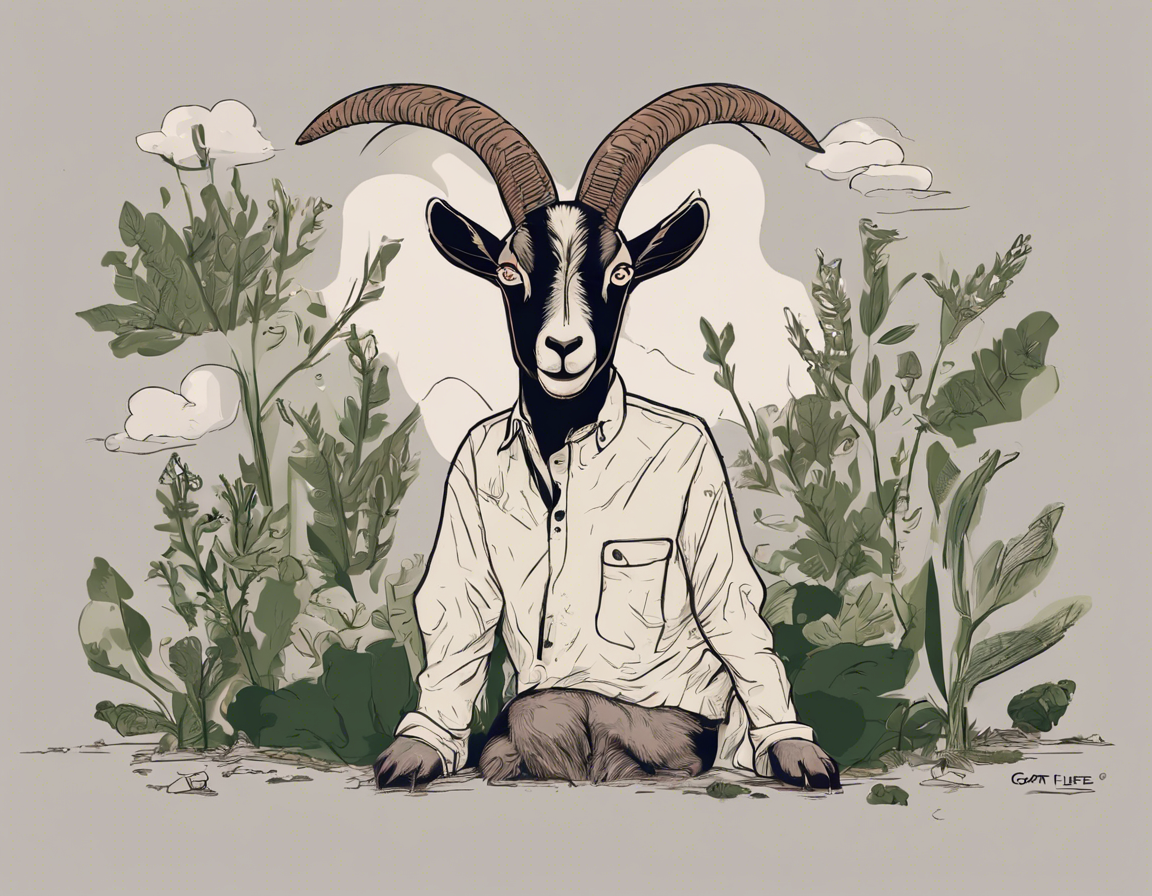Introduction
The trend of sustainable living has been gaining traction in recent years, with more individuals opting for a lifestyle that minimizes their impact on the environment. One of the ways to achieve this is by embracing goat life – a sustainable and self-sufficient way of living that involves keeping goats for various purposes such as milk, meat, fiber, and land maintenance. In this comprehensive guide, we will delve into the various aspects of living the goat life, including the benefits, challenges, and practical tips for those looking to embark on this rewarding journey.
Benefits of Living the Goat Life
Goats are Low-Maintenance Animals
– Goats are known for their hardiness and adaptability to various climates and terrains, making them an ideal choice for small-scale farmers and homesteaders.
– They are efficient grazers and can help in clearing land from unwanted vegetation, reducing the need for harmful chemicals and machinery.
Goats Provide Sustainable Resources
– Goats are multi-functional animals that can provide milk, meat, fiber, and even companionship.
– Goat milk is a nutritious alternative to cow’s milk and is suitable for individuals with lactose intolerance.
– Goat meat is a lean and flavorful protein source that is in high demand in many cultures.
– Angora and cashmere goats produce high-quality fibers that can be spun into luxurious yarns and fabrics.
Environmental Benefits
– Goats are considered environmentally friendly animals as they have a smaller carbon footprint compared to cattle.
– Their grazing habits can help improve pasture quality, decrease fire hazards, and promote biodiversity.
Challenges of Living the Goat Life
Time and Commitment
– Goats require daily care and attention, including feeding, watering, and health monitoring.
– Goats are social animals and thrive in the company of their herd, so it’s essential to provide them with adequate companionship.
Space and Infrastructure
– Goats need sufficient space to roam and graze, along with shelter to protect them from the elements.
– Fencing is crucial to keep goats safe and prevent them from escaping.
Healthcare and Nutrition
– Goats are susceptible to various health issues, such as parasites and infections, requiring regular deworming and vaccination.
– Proper nutrition is critical for the health and well-being of goats, including access to fresh water, quality forage, and mineral supplements.
Practical Tips for Living the Goat Life
Choosing the Right Breed
– Consider the purpose of keeping goats (milk, meat, fiber) when selecting a breed that suits your needs.
– Research different goat breeds for their temperament, size, milk/meat production, and climate adaptability.
Creating a Suitable Environment
– Provide adequate shelter and bedding for goats to protect them from inclement weather.
– Ensure access to fresh water, good quality forage, and mineral supplements for optimal health.
Establishing a Routine
– Develop a daily care routine for feeding, milking (if applicable), health checks, and pasture rotation.
– Maintaining a consistent schedule helps goats feel secure and promotes their overall well-being.
Building a Support Network
– Join local goat-keeping groups or online forums to connect with experienced goat owners and seek advice.
– Attend workshops or training sessions on goat care and management to enhance your knowledge and skills.
Frequently Asked Questions (FAQs)
Q1: Are goats suitable for urban or suburban settings?
A1: While goats require space to roam and graze, some urban or suburban areas may allow for small-scale goat keeping with the proper permits and zoning regulations.
Q2: What are the key considerations when setting up a goat enclosure?
A2: Goat enclosures should be secure, well-ventilated, and equipped with shelter, clean bedding, feeders, and waterers. Fencing should be sturdy to prevent escapes.
Q3: How often do goats need to be dewormed and vaccinated?
A3: Deworming should be done every 4-6 weeks, depending on the goat‘s age and exposure to parasites. Vaccination protocols vary, so consult with a veterinarian for a customized plan.
Q4: What is the average lifespan of a goat?
A4: Goats can live up to 12-15 years, depending on their breed, environment, and level of care.
Q5: Can goats be kept as pets?
A5: Goats can make wonderful pets due to their friendly and inquisitive nature. However, they still require proper care, nutrition, and a suitable environment.
Living the goat life offers a unique opportunity to embrace a sustainable and self-sufficient lifestyle while reaping the benefits of goat ownership. By understanding the various aspects of goat care, from choosing the right breed to establishing a routine and seeking support from the goat-keeping community, individuals can embark on this fulfilling journey with confidence and success. Remember, goat ownership is a commitment that requires time, effort, and dedication, but the rewards are well worth it in the end.
